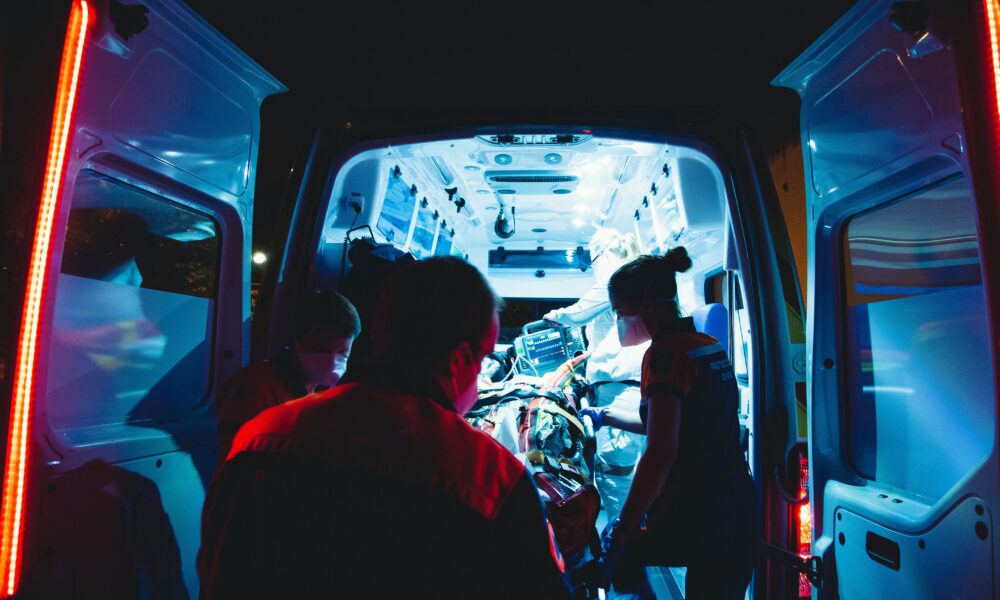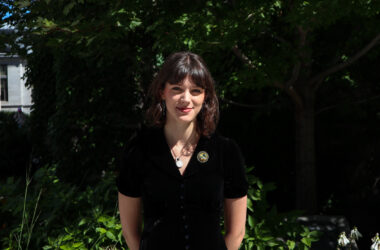“Text me when you get home.” My friends and family said it so often that, when my sister said it that night, it seemed like a suggestion I could ignore. It was 10:30 p.m. on Super Bowl Sunday, early enough to walk the 20 minutes home. I had done it hundreds of times before, so when she asked if she could call me an Uber, I laughed. I bundled up, hit shuffle on my playlist, and left excited for my late-night stroll— it was 20 minutes I could avoid studying for my economics midterm. I was lost in the class and stressed that I would be hit with a failing mark. Little did I know, I was minutes away from being hit by something much more painful.
I woke up to the flashing lights of an ambulance and panic surrounding me. Confused and disoriented, I started to sit up when I felt a sharp pain in my shoulder. A woman in an EMT jacket urged me to lay back down on the pavement, alerting me that I had been hit by a car and my head was bleeding. The rest of the night was a blur.
I was discharged from the hospital at 5 a.m. with six stitches in my head and every ligament in my left shoulder torn. Despite being exhausted, overwhelmed, and in physical pain, my first thought was whether I would be excused from my midterm.
I took the next week to focus on my recovery. But, as schoolwork piled up, it became increasingly difficult to relax. I was in my second semester of my third year and graduating on time felt essential. Today, I often wonder why.
I limited the painkillers to keep myself alert, tolerated the headaches that came with trying to study post-concussion, limped my way to campus with a backpack on one shoulder and a sling on the other, and tried my best to catch up on my school work and missed midterms. My first make-up exam came just nine days after my accident, and all I remember is my concussed head spinning as I held my pen. Later that week, I went to Service Point and requested to withdraw from my economics class with a refund. When my request was denied, I felt defeated.
Thanks to the help of several friends and family who shared notes, carried my backpack, made me dinners, and lent me their shoulders—for crying and lifting objects—I was slowly progressing through the semester. Still, it was not going well. I strongly considered forfeiting my semester tuition and returning home when suddenly, campus life took a drastic turn: The COVID-19 pandemic hit Montreal.
Although the initial switch to remote learning was a harsh adjustment for most people, it was my saving grace. I returned home and began to heal and complete the school year at my own pace. Ironically, the on-time graduation I longed for will now be held as a virtual ceremony.
After looking back on the past year, I am disappointed in myself for the way I reacted to injuries beyond my control. The pressure I put on myself to graduate on time, to get back up before I was ready, and the blatant disregard of my own pain was unacceptable. Somehow, I became the kind of person that let society dictate my success and believed it would be worth less if it came one year later. Unfortunately, this is the case for many university students.
I learned a lot in 2020, and I am glad to be graduating with the understanding that life is not one-size-fits-all. It took an accident and a pandemic to force me to slow down and prioritize my own health, but it is a mistake I will never make again.
I am confident that I will someday graduate, find a job, and become a functioning adult. But I am not in any rush because, as I have brutally discovered, it’s not about when you reach your destination, it’s about getting there safely.







